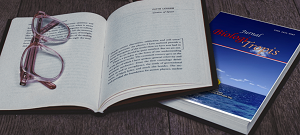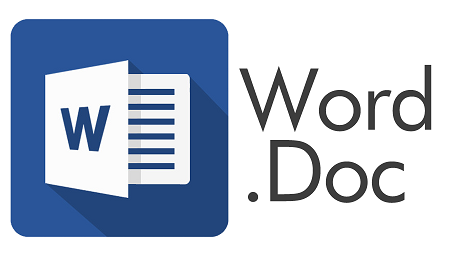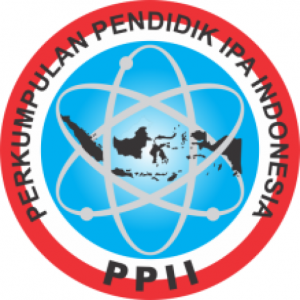The Relationship Between Stress Levels and Academic Performance of Undergraduate Nursing Students in the 2024/2025 Academic Year at Universitas Advent Indonesia
Authors
Inesti Febrianti Gea , Debilly Yuan BoyohDOI:
10.29303/jbt.v25i4a.10676Published:
2025-11-14Issue:
Vol. 25 No. 4a (2025): Special IssueKeywords:
Academic performance, Students, Stress levelsArticles
Downloads
How to Cite
Downloads
Metrics
Abstract
Academic stress is one of the psychological factors often experienced by students during higher education. Task pressure, academic demands, and adaptation to the learning environment can affect students' emotional well-being and academic performance. This condition needs to be studied because uncontrolled stress can reduce motivation and concentration in learning. The purpose of this study was to determine the relationship between stress levels and the academic performance of undergraduate nursing students in the 2024/2025 academic year at Advent University Indonesia. This study used a quantitative method with a correlational analytical design and a cross-sectional approach. The sample consisted of 77 students selected using purposive sampling. The research instrument used the Perceived Stress Scale (PSS-10) questionnaire to measure stress levels, while academic performance data was obtained from the Grade Point Average (GPA). The results of the Pearson correlation test showed a significance value of 0.479 and a correlation coefficient of -0.082, which means that there is no significant relationship between stress levels and academic performance. Thus, it can be concluded that stress is not the only factor that affects student learning achievement, as other factors such as motivation, social support, and the academic environment also play a role. The conclusion is that there is no relationship between stress levels and student academic achievement.
References
AIPNI;, Haryanti, F., Nursanti, I., Nuraini, T., & Hidayati, W. (2021). Kurikulum Pendidikan Ners Indonesia Tahun 2021. In Aipni.
Aji, A. G. H. S. (2020). Gambaran Tingkat Stres Berdasarkan Stressor Mahasiswa PSPD UIN Maulana Malik Ibrahim Malang.
Andriany, A., & Cahyadi, M. (2024). The Relationship between Self-Regulated Learning and Academic Stress in Student who are Working on Their Thesis while Working. 1–11. https://doi.org/10.4108/eai.18-7-2023.2343392
Cleary-Gaffney, M., Espey, B., & Coogan, A. N. (2022). Association of perceptions of artificial light-at-night, light-emitting device usage and environmental noise appraisal with psychological distress, sleep quality and chronotype: A cross sectional study. Heliyon, 8(11). https://doi.org/10.1016/j.heliyon.2022.e11284
Djoar, R. K., Putu, A., Anggarani, M., Airlangga, U., & Fisioterapi, P. S. (2024). Faktor - Faktor Yang Mempengaruhi Stress Akademik. Jambura Health And Support Journal, 6(1), 52–59.
Farodisa, A., & Linggardini, K. (2020). Gambaran Tingkat Stress Mahasiswa S1 Keperawatan Universitas Muhammadiyah Purwokerto Selama Menjalani Praktek Klinik Keperawatan Dasar. Jurnal Keperawatan Muhammadiyah, 96(September), 91–95.
Gaite, G., Ingkiriwang, E., & Tania, E. (2021). Gambaran Tingkat Stress , Kecemasan dan Depresi Mahasiswa saat Adaptasi Tahun Kedua Pandemi COVID-19 The Levels of Stress , Anxiety , And Depression of Students during The Second Year Adaptation of COVID-19 Pandemic. JURNAL KEDOKTERAN MEDITEK, 28(3), 289–294.
Ghania, S., & Prihatsanti, U. (2025). Faktor-Faktor Yang Mempengaruhi Stres Akademik Pada Mahasiswa Di Indonesia : Studi Literatur. Jurnal Empati, 14(3), 265–273.
Gibran, A. K. (2024). Pengaruh Self-Control Terhadap Prokrastinasi Akademik Pada Mahasiswa Tingkat Akhir.
Gisela, E. S., Kinkie, E. A., Sabbilla, A., & Subroto, U. (2025). Pengaruh Stres Akademik terhadap Kesejahteraan Psikologis Mahasiswa Semester Akhir yang Terlambat Lulus. Jurnal Mahasiswa Humanis, 5(1).
Haholongan, R., Herjamy, F., Ghiyats, F., Putra, P., & Gigir, M. (2024). Penyuluhan Mengelola Stres Dalam Meningkatkan Prestasi Belajar Mahasiswa Belajar Mahasiswa Di Kampus Sekolah Tinggi Ilmu Ekonomi Indonesia. Jurnal Budimas, 6(3), 2715–8926.
Junaidi, I., & Fitriani, W. (2025). Pemecahan Masalah Dan Metakognisi Dalam Proses Transfer Pengetahuan. Jurnal Cendekia Ilmiah, 4(2), 1587–1592.
Kurniawan, A., Gunardi, A., Asmawati, L., & Hidayat, S. (2024). Students’ Motivation and Self-Management Online Learning in Vocational Hight School 11 Grade. Jurnal Dunia Pendidikan, 5(1), 203–219.
Larasati, L. (2024). Hubungan tingkat stress dengan kualitas tidur mahasiswa keperawatan dalam mengerjakan tugas akhir di universitas advent indonesia seminar proposal. Program Studi S1 Keperawatan Fakultas Ilmu Keperawatan Universitas Advent Indonesia Bandung.
Lestari, P. I. (2022). Hubungan Stres Dengan Prestasi Akademik Mahasiswa Tingkat Pertama Program Studi Pendidikan Dokter UIN Maulana Malik Ibrahin Malang.
Mentari, D. G., Sabirin, I. P. R., Safira, R., & Sulaksana, S. D. (2024). Correlation of cheek biting with stress and salivary cortisol in final-year dentistry students: a cross-sectional study. Padjadjaran Journal of Dentistry, 36(3), 363–371. https://doi.org/10.24198/pjd.vol36no3.58218
Nguyen-Thi, T. T., Le, H. M., Chau, T. L., Le, H. T., Pham, T. T., Tran, N. T., Ngo, Q. P. M., Pham, N. H., & Nguyen, D. T. (2024). Prevalence of stress and related factors among healthcare students: a cross – sectional study in Can Tho City, Vietnam. Annali Di Igiene Medicina Preventiva e Di Comunita, 36(3), 292–301. https://doi.org/10.7416/ai.2023.2591
Olson, N., Oberhoffer-Fritz, R., Reiner, B., & Schulz, T. (2025). Stress, student burnout and study engagement – a cross-sectional comparison of university students of different academic subjects. BMC Psychology, 13(1). https://doi.org/10.1186/s40359-025-02602-6
Pasaribu, A., Simanjuntak, H., & Situmeang, E. (2024). Lingkungan Belajar Dan Faktor-Faktor Non Intelektual. Pediaqu : Jurnal Pendidikan Sosial Dan Humaniora, 3(4), 5693–5701.
Putri, N. S., & Marsofiyati. (2024). Pengaruh Motivasi Belajar, Fasilitas Belajar dan Kepercayaan Diri terhadap Prestasi Belajar Mahasiswa Universitas Negeri Jakarta. Student Research Journal, 2(5), 91–104.
Putri, R. N., Hidayah, N., & Mujidin. (2021). Penyesuaian Diri, Dukungan Sosial, dan Gaya Belajar Visual : Kontribusi terhadap Stres Akademik Siswa di Masa Pandemi. Psyche 165 Journal, 339–345. https://doi.org/10.35134/jpsy165.v14i4.136
Rahmadi, M. A., Nasution, H., Mawar, L., & Sari, M. (2024). Analisis Keterkaitan Kesehatan Mental Dan Stres Akademik Mahasiswa. Counseling For All: Jurnal Bimbingan Dan Konseling, 4(2), 37–50. https://jurnal.uniraya.ac.id/index.php/Counseling
Restu, D. D. W. (2020). Pola Belajar Mahasiswa Pekerja Part-time: Studi Terhadap Mahasiswa Jurusan PAI UIN Sunan Kalijaga Yogyakarta. Jurnal Tarbawi Stal Ai Fithrah, 119–135.
Siagian, I. O., Linda Sok, & Melia, S. (2025). Hubungan Tingkat Stres Dengan Prestasi Akademik Mahasiswa. Jurnal Keperawatan Muhammadiyah, 10(1), 114–119.
Simanjuntak, E. Y., & Pangaribuan, A. R. (2022). Resiliensi akademik mahasiswa keperawatan masa pandemi COVID-19. Jurnal Keperawatan Widya Gantari Indonesia, 6(1), 84–88.
Sosiady, M. (2020). Analisis Dampak Stres Akademik Mahasiswa Dalam Penyelesaian Tugas Akhir (Skripsi) Studi Pada Mahasiswa Program Studi Manajemen. Jurnal El-Riyasah, 11(1), 14–28.
Yanti, Nauli, J. K., & Bui, T. C. (2025). Motivasi Dan Emosional Berperan Penting Dalam Pembelajaran Pendidikan Bagi Peserta Didik.
Yuda, M. P., Mawarti, I., & Mutmainnah, M. (2023). Gambaran Tingkat Stres Akademik Mahasiswa Dalam Menyelesaikan Tugas Akhir Skripsi Di Fakultas Kedokteran Dan Ilmu Kesehatan Universitas Jambi. Pinang Masak Nursing Journal, 2(1), 38–42.
License
Copyright (c) 2025 Inesti Febrianti Gea, Debilly Yuan Boyoh

This work is licensed under a Creative Commons Attribution 4.0 International License.

Jurnal Biologi Tropis is licensed under a Creative Commons Attribution 4.0 International License.
The copyright of the received article shall be assigned to the author as the owner of the paper. The intended copyright includes the right to publish the article in various forms (including reprints). The journal maintains the publishing rights to the published articles.
Authors are permitted to disseminate published articles by sharing the link/DOI of the article at the journal. Authors are allowed to use their articles for any legal purposes deemed necessary without written permission from the journal with an acknowledgment of initial publication to this journal.


























